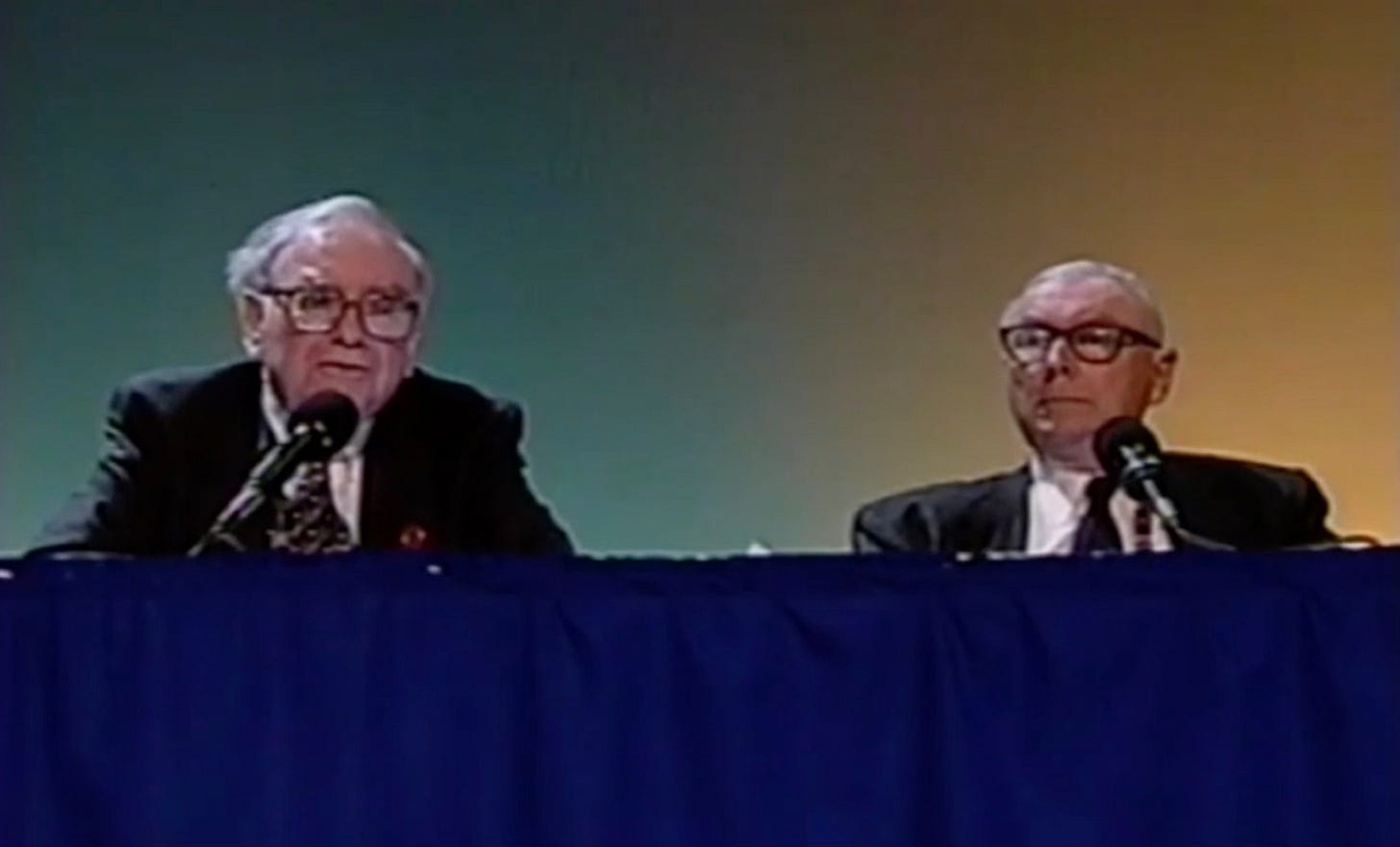Uncommon Sense: 1998 Berkshire Hathaway AGM
"The best way to get what you want," said Charlie Munger, "is to deserve what you want."
As mentioned last week, I’m switching up the AGM At-A-Glance format a bit.
Instead of summarizing each and every question from a particular year’s annual shareholders meeting, the focus has shifted to the core lessons and insights shared by Warren Buffett and Charlie Munger. So, basically, it’s more a collection of timeless wisdom and less an exhaustive recap of absolutely everything said that day.
Berkshire Hathaway’s mind-blowing performance stems from making fewer, simpler choices. “This is not like Olympic diving,” said Warren Buffett, “in [that] they have a degree of difficulty factor. If you can do some very difficult dive, the payoff is greater if you do it well than if you do some simple dive.” And that’s just not the case in the money game, where you get paid just as well for simple successes as difficult ones. “We look for one-foot bars to step over rather than seven- or eight-foot bars [that would] set some Olympic record.”
People end up with the reputation they deserve. But, happily, you can build the reputation you want by taking the proper actions in life. “I always say that the best way to get what you want is to deserve what you want,” said Charlie Munger. And the easiest way to do that is with consistent, admirable behavior. “People leave track records in life,” continued Charlie. “Track records are very important. If you start early, trying to have a perfect record in some simple thing like honesty, you’re well on your way to success in this world.”
Bad news comes first. Buffett tells his managers to always report any bad news immediately. Not tomorrow, not an hour from now, but right this second. “Almost every business has problems,” he said, “and we’d just as soon the manager tells us about them.” Such transparency and honesty builds trust between Omaha and the subsidiaries — and allows for swift corrective action as needed.
Exceptional businesses can intelligently repurchase stock at nose-bleed prices. Someone asked Buffett about Coca-Cola recently buying back its own shares at a 40 p/e ratio — which seemed to run counter to his past remarks on the subject. But, in a surprising twist, he endorsed the move — but only for the very best businesses. “It sounds like a very high price when you name it in terms of the p/e,” said Buffett, “but I would say there are very few times in [the last] 112 years when it would not have been smart for Coca-Cola to be repurchasing its shares.” In fact, he loves it whenever Coke buys in its own shares. “I’d rather have them repurchasing shares at 15x earnings, but when I look at other ways to use the capital, I still think it’s a very good use of capital.” (Perhaps there’s a parallel between Buffett’s answer here and his opinion on Apple’s high-priced buyback program in recent years.)
“When we own stock in a wonderful business,” added Charlie, “we like the idea of repurchases — even at prices that may give you nose bleeds. It generally turns out to be a pretty good policy.” There are limits, of course, but the buyback price ceiling is much higher for truly outstanding companies.
Volatility is not risk. It’s opportunity. Or, in other words, market downturns (and the resulting low prices) are an intelligent investor’s best friend. When others panic and start stampeding for the exits, Warren and Charlie patiently go to work. Back in the early 1970s, when the Washington Post Co. dropped by 50% in a matter of months, that didn’t make it a riskier investment — but, rather, a much safer one.

